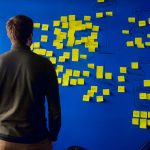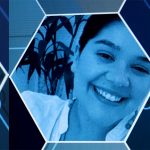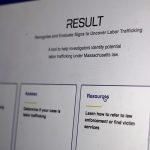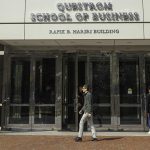The recent transition to virtual education has exacerbated social inequalities that have existed for decades in the educational and pre-professional realms.

Boston University facilitated an open dialogue event titled “Is Science For Me? From Stories to Actionable Solutions” Monday on how socioeconomic status shapes students’ interests in a career in medicine and sciences.
From sharing personal experiences to presenting tangible solutions to minimize disparities, the event allowed students from different backgrounds to discuss solutions to challenges faced by disadvantaged students.
Actionable solutions aimed at increasing student financial literacy included on-campus financial consultants and seminars, as well as a collaboration with the College of Engineering and the Questrom School of Business to develop a budgeting application specifically for BU students.
Conversation co-host JoColl Burgess, a School of Medicine predoctoral trainee, said it’s important for students to learn how to manage their funds.
“They can actually see what’s happening with their money,” Burgess said at the event. “They can take more ownership and have more actionable plans in the future.”
Despite the personal nature of finances, Burgess said students should participate in these programs because it’s a “group effort” to support their peers who may be struggling financially.
Universities should be transparent about all financial options available to students, specifically loan options, said Karen Bottenfield, a Ph.D. candidate in anatomy and neurobiology who attended and spoke at the event.
Many students face obstacles to their education — such as homelessness, military deployment and child care responsibilities — so the conventional financial path may not be best suited for individual circumstances, she said.
Neha Gondal, an assistant professor of sociology at BU, said in an interview lower-income students face not only insufficient resources but also inadequate support networks for pursuing careers in medicine and science.
“If around us, the people who we see tend to not have degrees in medicine or science, we generally are less likely to pursue those goals,” Gondal said. “The compounded effect, both of access to financial resources as well as social influence, put together, means that people who are from lower socioeconomic statuses are less likely to pursue these kinds of degrees.”
She said increasing outreach efforts to high schools in lower-income communities exposes students to role models in science industries. Forming meaningful connections with students can demonstrate that these careers are “within the realm of possibility, ” Gondal said.
“We tend to trust those who we’re friends with, those we interact with more,” Gondal said. “We’re also more open to influence from such people. And so, if somebody just comes and gives a talk, that may not resonate with you if you think they’re different from you.”
BU’s Newbury Center offers programs to support first-generation and other underrepresented students. Maria Dykema Erb is the inaugural director of the Center, which opened in January.
“When we’re able to get first generation of BU staff connected who are pursuing these careers, and they can show as role models, that is something that first-gen or lower-income students can pursue and be successful in,” Erb said in an interview. “They’re able to share their own personal experiences about some of the barriers they face, but also what they’ve overcome and what they bring to the fields of STEM.”
The Newbury Center is also partnering with the Undergraduate Research Opportunities Program to connect students with paid research positions to help them gain STEM experience while being financially supported.
Gondal offered examples of how the COVID-19 pandemic has also illuminated existing social inequalities, which hinders students’ paths academically and professionally.
“[Low-income students] were more likely to live in multi-generational households and consequently live in the fear of exposing their loved ones to COVID-19,” Gondal said. “They were more likely to be in essential jobs, which meant that they were much less likely to continue to pursue college degrees.”
Erb said other concerns for low-income students include food insecurities and limited access to technology.
“What they’re going through is not unique to them specifically, but rather there are other students experiencing similar challenges that they are,” Erb said. “If they lean on one another … they can find that support with one another.”














